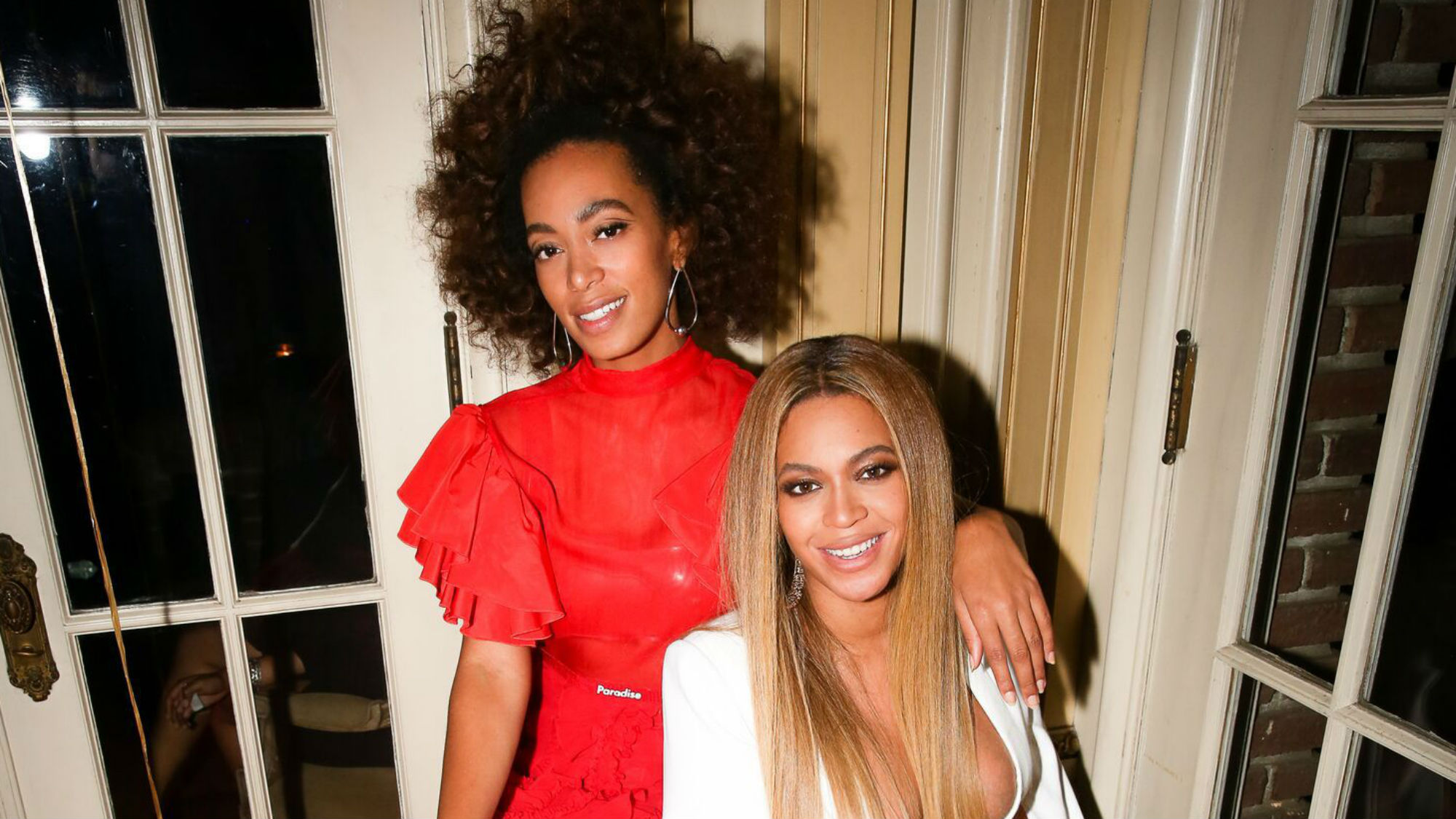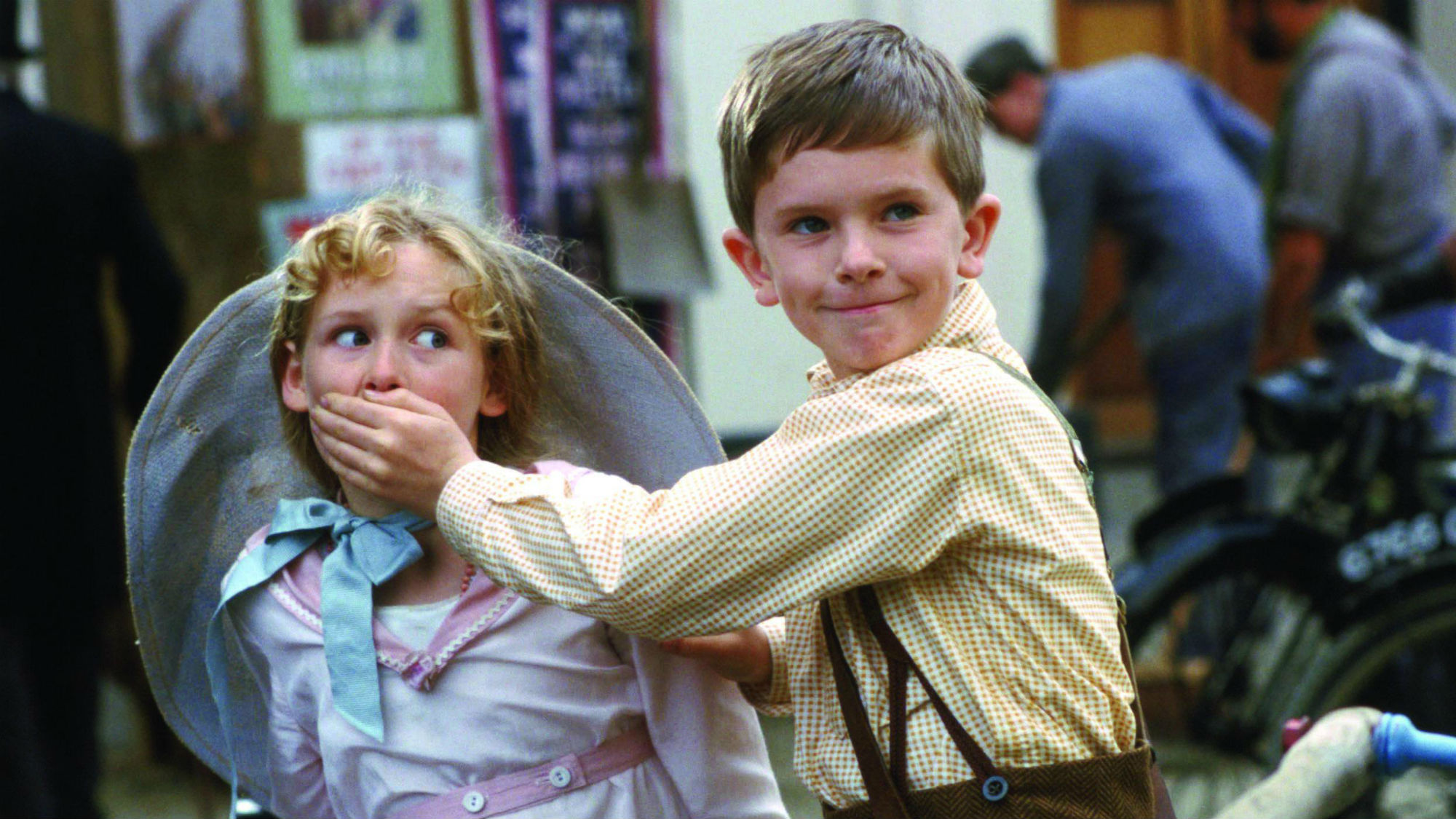How siblings determine your personality
Our relationships with our siblings influences everything from our personalities to our attitudes towards love and careers as adults. Where do you sit in the family tree?

Celebrity news, beauty, fashion advice, and fascinating features, delivered straight to your inbox!
You are now subscribed
Your newsletter sign-up was successful
Our relationships with our siblings influences everything from our personalities to our attitudes towards love and careers as adults. Where do you sit in the family tree?
Words by Stuart Heritage
My little brother Pete tried to stab me once. About 20 years ago, I embarrassed him in front of his friend, so he grabbed a kitchen knife and came for me. He didn’t actually stab me, obviously, because I’d locked him in our kitchen, so all he could do is swish the knife underneath the door in the hope of connecting with my ankle. But he definitely tried to stab me.
It’s no fun being the oldest sibling. Sure, it looks like we’ve got it easy – we enjoyed years of undivided parental attention that our younger siblings didn’t – but look at it from our perspective. We’re out there leading from the front, without a blueprint, making all the mistakes first-hand. We discovered school first, got bad haircuts first, tripped up romantically first. All a younger sibling has to do is watch, learn and smile gratefully when they inherit our old clothes. But instead they just complain about us being ‘the favourite child’.
This is my whole life, to the extent that I’ve written a book about it. Entitled Don’t Be a Dick, Pete, it details all the ways my younger brother lashed out against the world because of the constant unfavourable comparisons to me: the golden boy who arrived just when my parents thought they’d lost their last shot at parenthood. I did well at school; he bunked off a lot. I obeyed basic societal rules; he carved his name into our bathtub with a stone. I was the favourite son; he was the difficult one. This, it turns out, is textbook birth order in action. ‘Firstborns often become “third parents”,’ says Dr Jonathan Caspi, professor of family and child studies at Montclair State University in New Jersey. ‘They uphold their parents’ rules with their younger siblings by saying things like, “Don’t do that, Mum will be mad.” This move usually wins parental approval.’
Videos you may like:
Video you may like:
These inherited roles can easily become primary character traits. Get labelled as ‘the difficult one’ or ‘the clever one’ enough as a kid and it’s bound to leave a mark. Jennifer, a girl I went to school with, almost caved under the pressure of being the ‘third parent’ by the time she hit her twenties. ‘I felt like it was all on me to set the best example at school,’ she says. But at university, removed from the small pond that was our hometown, with more than just her younger sisters to compete with, she found it harder to shine. ‘Out of nowhere, I was an average student, being unfavourably compared to more successful people for the first time ever. My self-esteem plummeted.’ Jennifer ended up dropping out of university before the end of her first year, disappointing her parents in the process. She’s a florist now, and doing OK.
This expectation on the first born to be the ‘leader’ or ‘authoritarian’ can be problematic, particularly for women, according to Ruth Glover, child psychotherapist at the Tavistock and Portman NHS Foundation Trust. ‘In a society that upholds certain expectations of women’s behaviour (for instance, the perception that showing aggression is less acceptable for women) this can lead to suppressed feelings that come out in other ways during adulthood. In the family, a girl who is expected to be the capable, caring one may feel pressure to swallow some of her more jealous or competitive emotions, which may later emerge as destructive behaviours in the workplace or in adult relationships.’
Celebrity news, beauty, fashion advice, and fascinating features, delivered straight to your inbox!
But labelling isn’t always bad. Once he’d accepted that he was ‘the difficult one’, Pete stopped clamouring for parental approval and got on with doing whatever he wanted. As a result, he’s flourished. He left home before I did, and bought four houses before I’d saved the deposit for one. He drives a fancy car, has an important job and is in good physical shape. He’s managed to do all of this with his inbuilt single-mindedness, while I ended up third-parenting myself into a corner.

‘Your relationship with your siblings plays a defining role, sometimes more than your relationship with your parents,’ says Glover. ‘It’s the first social grouping that we’re exposed to and something we refer back to throughout our lifetime. The ability to socialise and talk about emotions is something that I’ve noticed more in people who have brothers and sisters. Those who have an affectionate relationship with their siblings tend to cope better in stressful family situations. But bullying and rivalry between siblings can be disastrous – you can change schools if it happens there, but you’re stuck with your family.’
Dr Caspi says there will always be an innate competition between siblings. At worst this can be quite destructive, when the goal of the competition is to ‘dominate, embarrass and diminish the other’s sense of self’. But there’s an upside, too. ‘When the competition is respectful, supportive and fun, it can build unbreakable bonds and closeness,’ he adds.
Thankfully, there are only the two of us. Things get infinitely more complicated when you factor more siblings into the mix. Susannah, 30, enjoyed being the youngest child, but then her parents had another baby when she was two and a half and she was shunted into treacherous middle-child territory. ‘I asked my parents to “take that horrid baby back to the hospital”, and I didn’t talk to my brother for a year,’ she says. ‘I’m still a middle child by nature: I always assume I am getting the worst deal, which is rarely true, and I love attention. But my brother and I are close now – the first impression I formed as a toddler didn’t impact my life in any meaningful way.’
The main issue with being born into a label is that it is limiting. ‘You have an identity pushed on to you – often by parental expectation – and that doesn’t leave much room for authentic development,’ explains Glover. There’s also the risk that we can ‘play up’ to our perceived role because it’s all we’ve ever known. Jessica, 26, is the youngest of three sisters. ‘I grew up always having somebody to hold my hand and lead the way,’ she says. ‘But this dynamic led to me feeling daunted when I had to take charge, make decisions and be in control of my adult life, simply because I’d never had to. That was until I became a mother myself before either of my older sisters. All of a sudden I had to take charge, be responsible and learn through my own experience. It’s made me more confident and taught me that I am capable. I’m now showing my sisters how to do something new.’
Luckily for Pete, a 2008 study* points out that the coveted title of favourite child (ie my title) is never set in stone. Regardless of when you were born, the study claims parents will tend to favour ‘children who share their values; children who have achieved normative adult statuses and avoided deviant behaviours; children who have provided parents with support; and children who are more geographically proximate.’
Aside from the bit about deviant behaviour – Pete’s mates didn’t call him ‘Shagger’ for nothing in his twenties – this sums my younger brother up perfectly. Once I went off to university, and then lived abroad, Pete slowly became the sibling my parents could rely on. He’s always lived in the same town as my parents. He shares a lot more in common with them than I do. When their house burnt down in 2014, he was the one who grabbed the reins and made plans to fix everything while I stood at the sidelines with my thumb up my arse wondering when I stopped being the favourite child.
This is probably all the proof we need that the labels we’re given as a child are huge, but by no means permanent. Stick around, work hard enough and treat one another with respect and, who knows, you too might manage to become the favourite child. Seriously, if Pete can do it, so can you. You can’t be half as much of a dick as him.

What your relationship with your siblings says about you?
Dr Jonathan Caspi decodes your sibling birth order
ELDEST CHILD TRAITS
‘Most likely to be more assertive, conservative and high-achieving.'
Notable firstborns: Beyoncé, Hillary Clinton, J.K. Rowling
MIDDLE CHILD TRAITS
‘More likely to be depressed, better mediators and likely to seek support from friends rather than family in times of crisis.’
Notable middleborns: Princess Diana, Britney Spears, Madonna
YOUNGEST CHILD TRAITS
‘More sociable, outgoing, creative and funny.’
Notable lastborns: Jennifer Lawrence, Angelina Jolie, Ellen DeGeneres
ONLY CHILD TRAITS
‘Typically more highly educated and economically successful.’
Notable only children: Natalie Portman, Eleanor Roosevelt, Theresa May
Don’t Be A Dick, Pete (£12.99, Square Peg) is out now.
*Source: Current Directions In Psychological Science (Sage Journals, 2008)
The leading destination for fashion, beauty, shopping and finger-on-the-pulse views on the latest issues. Marie Claire's travel content helps you delight in discovering new destinations around the globe, offering a unique – and sometimes unchartered – travel experience. From new hotel openings to the destinations tipped to take over our travel calendars, this iconic name has it covered.